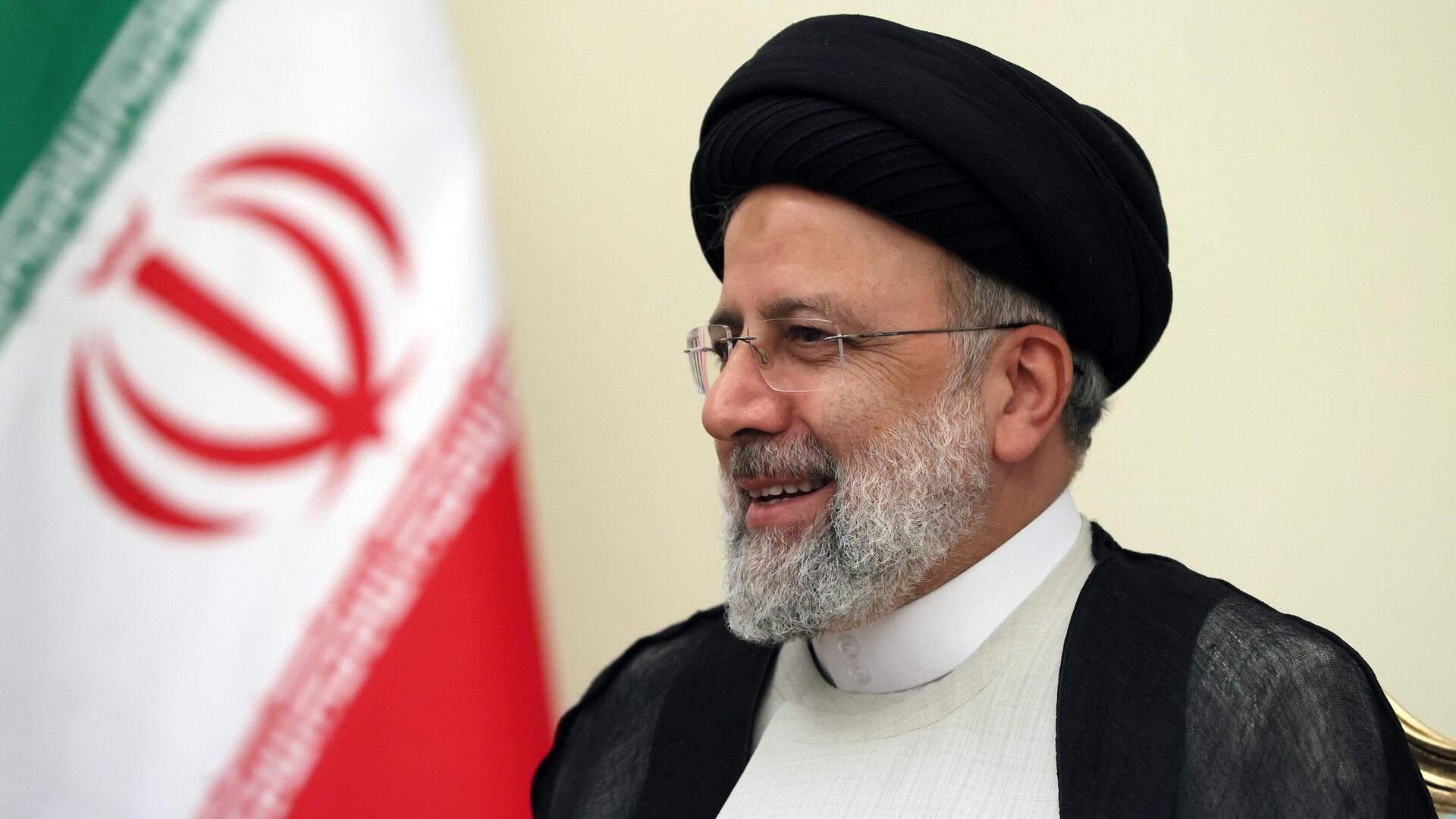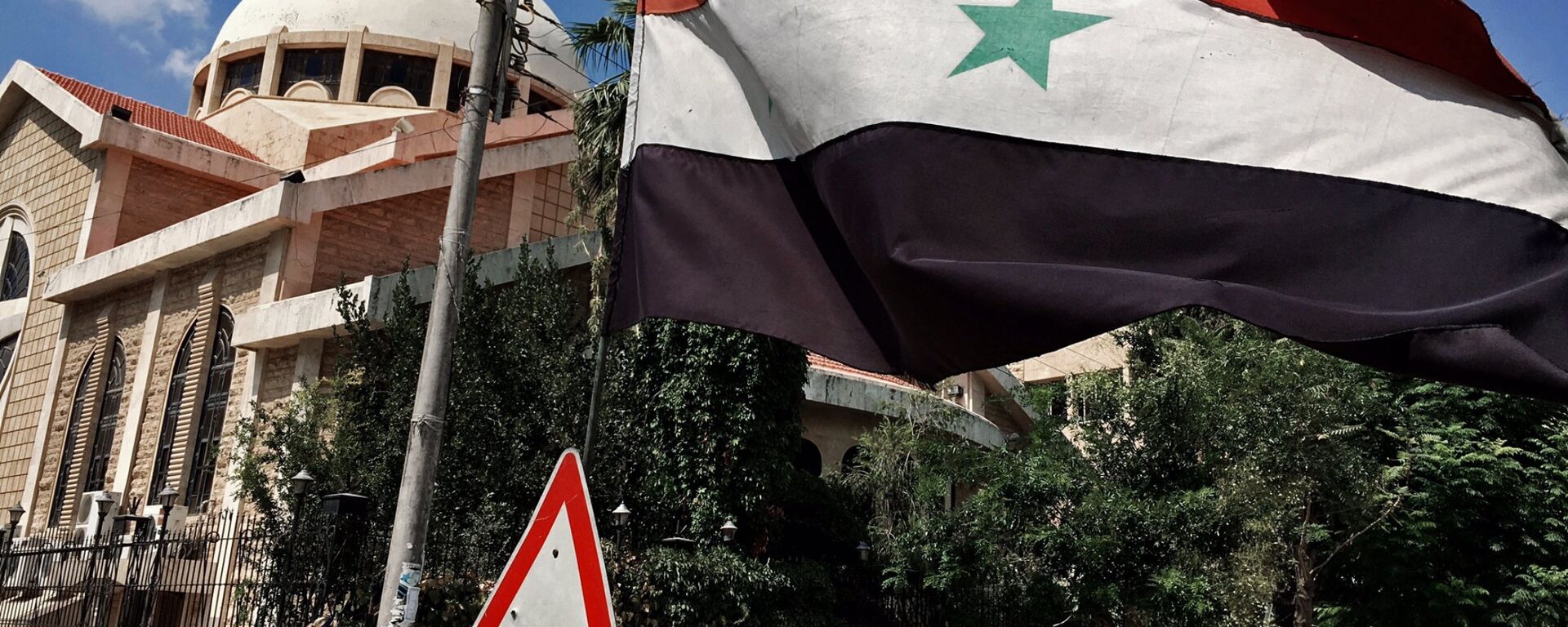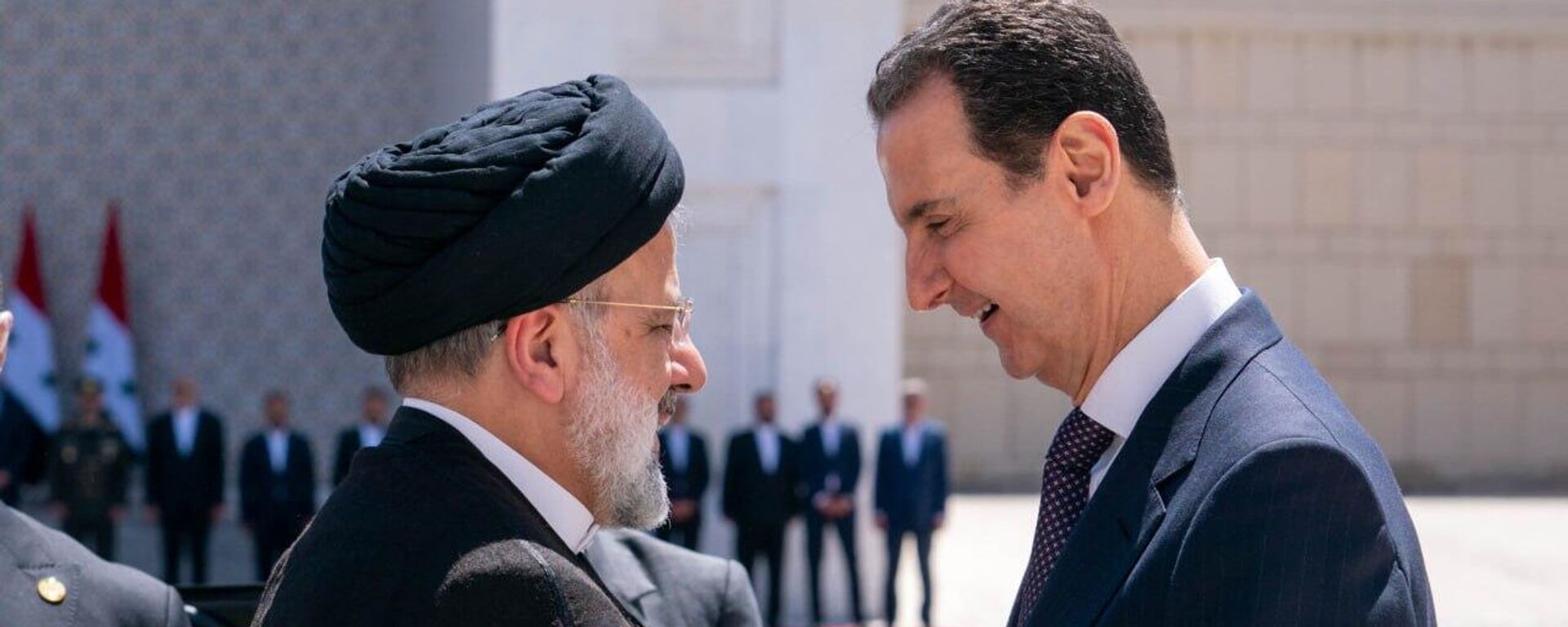Raisi's Visit to Syria Heralds Failure of West's Mideast Policy

© Sputnik / Sergei Savostyanov
/ Subscribe
Iranian President Ebrahim Raisi met his Syrian counterpart Bashar al-Assad on Wednesday. Raisi's Syria tour has become the first state visit by an Iranian president to the Arab Republic since the beginning of the Syria War in 2011.
"The visit of [Iranian President] Raisi to Damascus after a 13-year break shows that Iran has come out from the crisis and resumed its former role in international and regional affairs," Iranian expert on Arab countries and the Middle East, former editor-in-chief of the Mehr News Agency Hassan Khanizadeh, told Sputnik. "This visit is important from several points of view. Coordination between Iran, Russia, and Syria has made it possible to successfully counter thousands of trained terrorists and mercenaries. They have actually been neutralized, and this is a signal to the West that the policy of using terrorists and extremists in the region is useless and doomed to failure."
The collective West's proxy war in Syria has cost the Middle Eastern nation around $650 billion, according to some estimates. As per Khanizadeh, the US and its European allies dispatched over 150,000 mercenaries to Syria which led to the death of around 700,000 Syrian civilians.
Since the beginning of the Syrian conflict in 2011, the Obama administration urged the nation's legitimate president to step down, while US war planners openly suggested schemes to balkanize the country and carve its oil fields out of the Syrian Arab Republic. In particular, the idea to occupy al-Hasakah and Deir ez-Zor was voiced in a declassified 2012 US Defence Intelligence Agency (DIA) report that envisaged the possibility of creating a "Salafist principality" in the provinces "in order to isolate the Syrian regime".
Remarkably, the 2012 report openly said that Syria's balkanization was "exactly what" Western powers supporting the "opposition" wanted. Instead of "Salafists," the oil-rich areas have been occupied by the US-backed and Kurdish-dominated Syrian Democratic Forces (SDF), which has inflicted serious economic damage on the Arab Republic together with Washington's draconian Caesar Act sanctions.
At the time, the CIA kicked off Operation Timber Sycamore aimed at supplying weapons and training jihadists to fight against the Syrian Arab Army. It later turned out that Timber Sycamore-backed "rebels" fought alongside the al-Qaeda* offshoot al-Nusra Front*, in particular.
Russia's involvement in the Syrian War since 2015, at the official request of the legitimate Syrian government, as well as Iran's support for its neighbor has turned the tide of war in Damascus' favor.
The US-led coalition has failed to both oust Bashar al-Assad and isolate the country. Currently, major Arab states are considering resumption of Syria's membership in the 22-nation League of Arab States (LAS) which was suspended in 2011. Foreign ministers of Syria, Egypt, Iraq, Saudi Arabia, and Jordan met on May 1 in the Jordanian capital of Amman to continue consultations on Syria's readmission to the bloc.
"Raisi's visit once again confirmed the failure of Western policy and its 'capitulation' to the tripartite alliance of Russia, Iran and Syria," said Khanizadeh. "Terrorists cannot and should not be a tool in achieving [the West's] goals, and our countries can oppose this policy only in coordination and cooperation. Raisi's visit could lead to the beginning of a new stage in the life of Syria - a stage of stability, and the guarantee of this stability will be a broad coalition from Moscow and Tehran to Baghdad, Beirut and Damascus, which can put an end to the hegemony of the United States and its European allies."
Raisi's Syria trip is aimed at strengthening relations between Damascus and Tehran and creating new vectors of cooperation in politics, economics and security, according to Director of the Syrian Research Center Jameel Ali al-Hayek.
"The parties have signed many strategic partnership agreements with the aim, among other things, of deepening trade and investment relations," al-Hayek told Sputnik. "The visit of Raisi has demonstrated that friendship between the Syrian and Iranian peoples is strong. It is important to note that the comprehensive plan for strategic cooperation between the two countries implies not only the strengthening of economic ties, but also the recent process of bolstering the role of Syria in the region. In this regard, Iran is a reliable ally for the leadership of the Arab Republic."
Ali al-Hayek believes that Raisi's visit is nothing short of symbolic and sends a strong message to other countries, including the US. The latter, according to al-Hayek, has been suppressing the nations of the region and violated international law and all agreements.
"This is a message about how strong the partnership between Syria and Iran can be both in the near future and for many years to come," the scholar emphasized.
On top of that, Tehran has proven over the past few decades that, unlike the US and NATO, Iran never abandons its allies, echoed Emad Abshenas, Iranian political scientist and international politics expert.
"With regard to Syria, it is safe to say that today Iran and its allies are celebrating victory," Abshenas told Sputnik. "The signing of long-term strategic agreements in the field of economy, defense, security, etc. [between Tehran and Damascus] was a kind of response from Iran and Syria to those who made a fuss about the Arab countries, put forward their own conditions for the normalization of relations with Syria and demanded that Syria move away from Iran. By signing major agreements with Iran, the Syrian government has responded to all these challenges and told everyone that it will not allow anyone to interfere in the internal affairs of Syria. Syria has sent them a clear signal that its relationship with Iran will not only not weaken, but will strengthen in the long term."
*Al-Qaeda and al-Nusra Front (Jabhat Fateh al-Sham) are terrorist organizations banned in Russia and many other countries.




